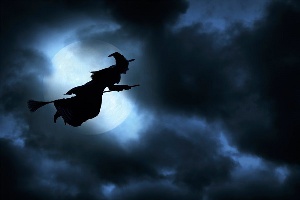 Practices related to accusations of witchcraft and ritual attacks have strong religious connections
Practices related to accusations of witchcraft and ritual attacks have strong religious connections
The Advocacy for Alleged Witches (AfAW) commends the proposed launch of some guidelines on the elimination of harmful practices related to accusations of witchcraft and ritual attacks.
This launch will be organized by the Pan African Parliament in collaboration with the UN Independent Expert on the Enjoyment of Human Rights by Persons with Albinism, Ms. Muluka-Anne Miti-Drummond, and the Centre for Human Rights, the University of Pretoria on March 15, 2023.
It must be recalled that in 2021, the UN General Assembly passed a resolution urging member states to take all necessary measures to ensure the elimination of harmful practices amounting to human rights violations related to accusations of witchcraft and ritual attacks. The UN asked countries to ensure accountability and effective protection of all persons particularly persons in vulnerable conditions.
While this resolution was addressed to all UN member states, it is evident that the states in question are mainly member states in Africa because it is in Africa that most of these violations take place. Africa is a region that still grapples with the problem of witch-hunting.
The AfAW is delighted by this initiative to step down this resolution and make it relevant to the African situation and circumstances. The AfAW welcomes this effort to transform and translate the resolution into a mechanism to address the problem in the region.
African countries face peculiar situations that colonialism, the advent of Christianity, and Islam have further complicated. Witch hunting has social, economic, political, cultural and religious aspects and the guidelines must address these specifics or they would be of no relevance.
Practices related to accusations of witchcraft and ritual attacks have strong religious, traditional, Christian, and Islamic connections. As a matter of faith, many African traditional religionists, Christians, and Muslims believe that alleged witches do the harm they are accused of doing.
They believe that attacks, killings, abuses, and maltreatment of alleged witches are justified. In addition, there are traditional, Christian, and Islamic religious experts who claim to have the power to identify and exorcise witchcraft. These religious professionals engage in witch-hunting as a form of religious service to the communities.
Witch hunters operate with impunity across the region. The guidelines should contain steps to weaken the grip of witch and ritual beliefs on the minds of Africans. The guidelines should outline mechanisms to hold witch hunters accountable and responsible for their crimes. The legal situation has contributed to the persistence of harmful practices linked to witchcraft accusations and ritual attacks.
Although witchcraft accusations and witch-hunting are against the law in many African countries, these legal provisions are seldom enforced. Many Africans regard these legal provisions, introduced during the colonial era and adopted as a part of the national laws at independence as western and inconsistent with African norms and values.
There have been calls and recommendations to repeal these laws and introduce provisions that criminalize witchcraft. In some African countries such as Cameroon and the Central African Republic, the law criminalizes witchcraft. The guidelines should suggest ways to address this complicated legal situation.
Furthermore, the witchcraft accusation is a public health issue and shows the decadent health infrastructure and appalling state of health care programs in the region. Africans use witchcraft narratives to make sense of public health challenges such as diseases and death. Often witches are held responsible for various ailments, including malaria, heart attack, and HIV/AIDS.
They have been accused of causing accidents and other misfortunes in families and communities. The guidelines should contain some health-related angles that address those gaps that Africans use accusations of witchcraft or ritual attacks to fill.
Lastly, the guidelines must address the human rights of those who identify as witches and ensure that steps are taken to protect their rights as human rights. The launch of these guidelines signals hope for the realization of a witch-hunting-free Africa. The AfAW envisions an end to abuses linked to witchcraft accusations and ritual attacks in Africa by 2030.
This launch will help realize this important vision and objective.